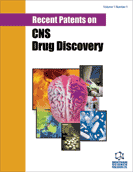Abstract
Osteoporotic hip fracture needs a specific approach and treatment, since elderly patients are at high risk for adverse outcomes after surgery. In particular, delirium often occurs in the peri-operative period, and it is associated with death, hospital-acquired complications, persistent cognitive impairments, poor functional recovery after surgery and increased healthcare costs.
The pre-operative assessment of the risk factors for delirium improves the preventive measures. The delirium diagnostic tools should be included in the standard of orthogeriatric cure for hip fracture. Given the increasing complexity of the clinical pictures, we present a review of the available treatment options for delirium in patients with hip fracture. The metabolic pre-operative disorders and the management of co-morbid diseases are specific targets of treatment in order to optimize the outcomes after surgery. In particular, elderly patients with Alzheimer’s disease are highly vulnerable to hip fracture and delirium, and they are severely frail with reduced physiologic reserves.
An integrated approach combining environmental and pharmacological strategies is useful in the delirium treatment, with a close collaboration between the orthopedic and geriatric team.
Keywords: Alzheimer’s disease, BDNF, cortisol, hip fracture, metabolism, neurotransmission.
 127
127

